
Start Here

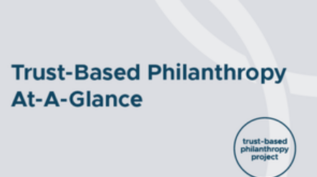
Trust-Based Philanthropy At-A-Glance
ToolDig Deeper
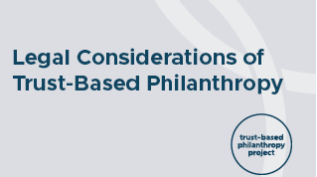
Legal Considerations of Trust-Based Philanthropy
Tool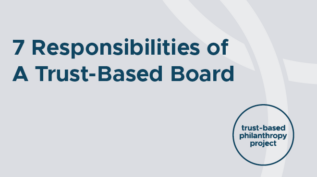
7 Responsibilities of A Trust-Based Board
ToolCase Studies
For Weissberg Foundation, Trust-Based Philanthropy Starts With Internal Culture-Building (Trust-Based Philanthropy Project, 2022)
How Claneil Foundation Puts Relationships into Practice (Trust-Based Philanthropy Project, 2022)
Tools + Sample Policies & Practices
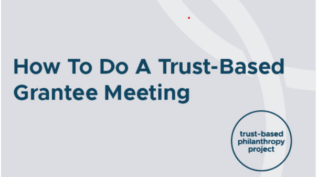
How to Do A Trust-Based Grantee Meeting
Tool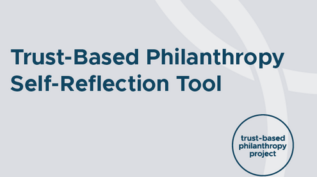
Trust-Based Philanthropy Self-Reflection Tool
ToolAdditional Resources
Trust-Based Philanthropy Project resource page: For additional guides and resources, including recordings from past presentations, sample policies, and resources from partners in the field.
The Strategic Value of Trust-Based Philanthropy (Stanford Social Innovation Review, 2024)
Three Ways to Operationalize Trust-Based Philanthropy Practices (PEAK Grantmaking, 2022)
